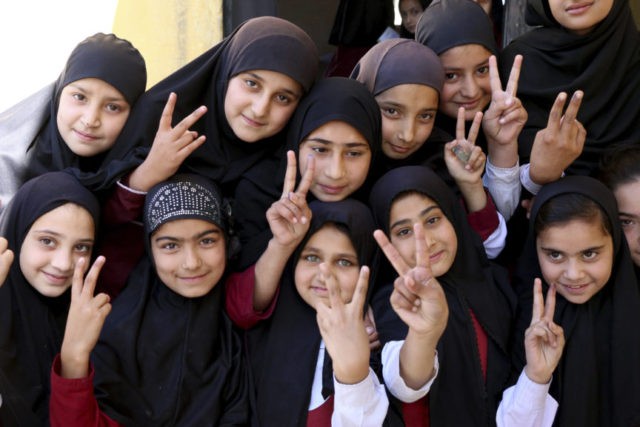Politicians in northwestern Pakistan have denounced the women’s marches that took place around the country earlier this month as “anti-Islamic,” after people took to the streets to celebrate International Women’s Day.
The marches, which took place on International Women’s Day on March 8th, involved Pakistani women marching through the streets while carrying posters demanding more right’s for women and attacking Pakistan’s male-dominated society.
However, Lawmakers in the provincial parliament of Khyber Pukhtunkhwa unanimously adopted a resolution on Wednesday denouncing the marches as a “shameless and un-Islamic act.”
According to Dawn, the resolution “stated that although the provincial assembly supports the rights granted to women and minorities by Islam, the “obscenity” witnessed on March 8th was not acceptable to it.” It also demanded that local authorities ask the federal government to “expose” such forces and “prepare a strategy to deal with such incidences in the future.”
“Some hidden forces have sped up their efforts to destroy our family system and social customs, the practical demonstration of which took place on March 8, 2019, in various big cities on Women’s Day,” the resolution read.
Those who signed the petition include lawmakers from Imran Khan’s ruling Tehreek-e-Insaf party and from opposition parties, including the left-wing Pakistan People’s Party now led by the son of former Prime Minister Benazir Bhutto.
Pakistan remains one of the most repressive societies in the world for women, mainly as a result of strict adherence to Islamic Law. According to Human Rights Watch 2018 report, “violence against women and girls—including rape, murder through so-called honor killings, acid attacks, domestic violence, and forced marriage—remains routine.”
Follow Ben Kew on Facebook, Twitter at @ben_kew, or email him at bkew@breitbart.com.

COMMENTS
Please let us know if you're having issues with commenting.